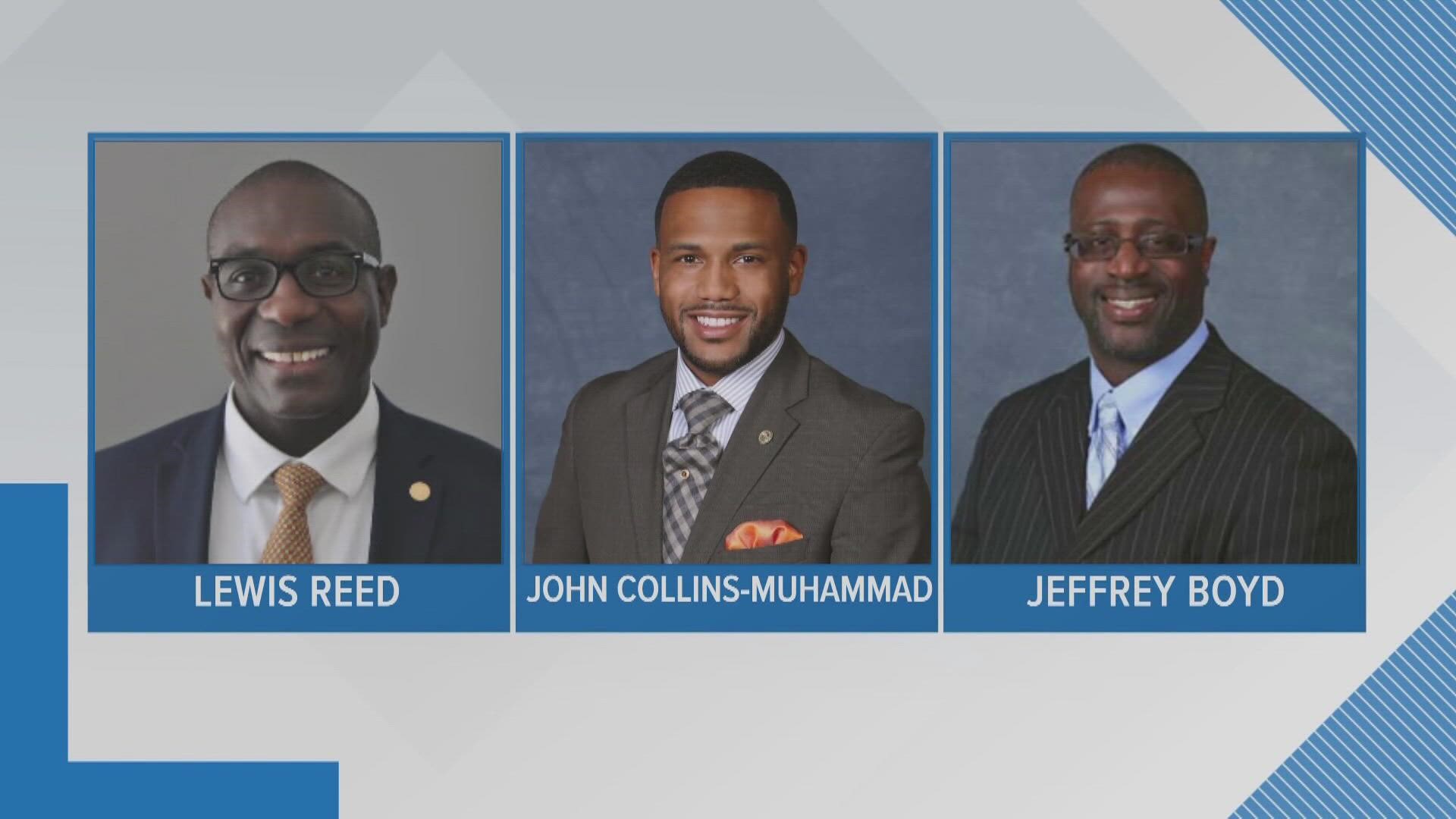ST. LOUIS — A former St. Louis alderman doesn’t believe he should have to pay the government for the money it used to catch him in a bribery scheme because it was “an investigative cost,” according to federal court documents filed this week.
John Collins-Muhammad was one of three St. Louis aldermen and a St. Louis County political appointee who got indicted earlier this year for accepting bribes from an FBI informant.
All have pleaded guilty and are in various stages of negotiating their sentences.
As part of those negotiations, all are undergoing presentence investigation reports in which the United States Probation Office discusses a range of punishments and fines.
On Tuesday, Collins-Muhammad’s attorney, Joseph Flees, entered a motion objecting to a recommendation that his client pay back the estimated $19,500 in bribes he accepted from the informant.
He cited the Victim and Witness Protection Act of 1982 in the filing, saying it “does not authorize courts to order restitution of ‘buy money’ because restitution under the statute is for ‘victims,’ and the government is not a victim when it fronts buy/bribe money or other investigative costs.”
He called the bribe money “an investigative cost and akin to buy money.”
Assistant U.S. Attorney Hal Goldsmith fired back in a motion today, stating, “Defendant has admitted his involvement in the bribery scheme, and his illegal receipt of cash bribes and other things of value totaling approximately $19,500. He simply doesn’t want to pay back the United States for the value of the bribes he received.”
Goldsmith also cited a 1991 case in which the federal courts determined that a fine of twice the amount of bribes a defendant accepted was appropriate.
“This court may consider a fine of up to twice the defendant’s gross gain, or in the instant case, up to $39,000, which is well within the applicable guideline range,” Goldsmith wrote.
Collins-Muhammad’s attorney also told the judge to consider his client’s financial status.
“Even if the court were to entertain repayment of these funds as a condition of supervised release, the court would still need to assess defendant’s financial resources, financial needs, and earning ability and defendant’s financial obligations to his dependents. When factoring all these considerations, repayment of this money is not proper under the circumstances,” he wrote.

